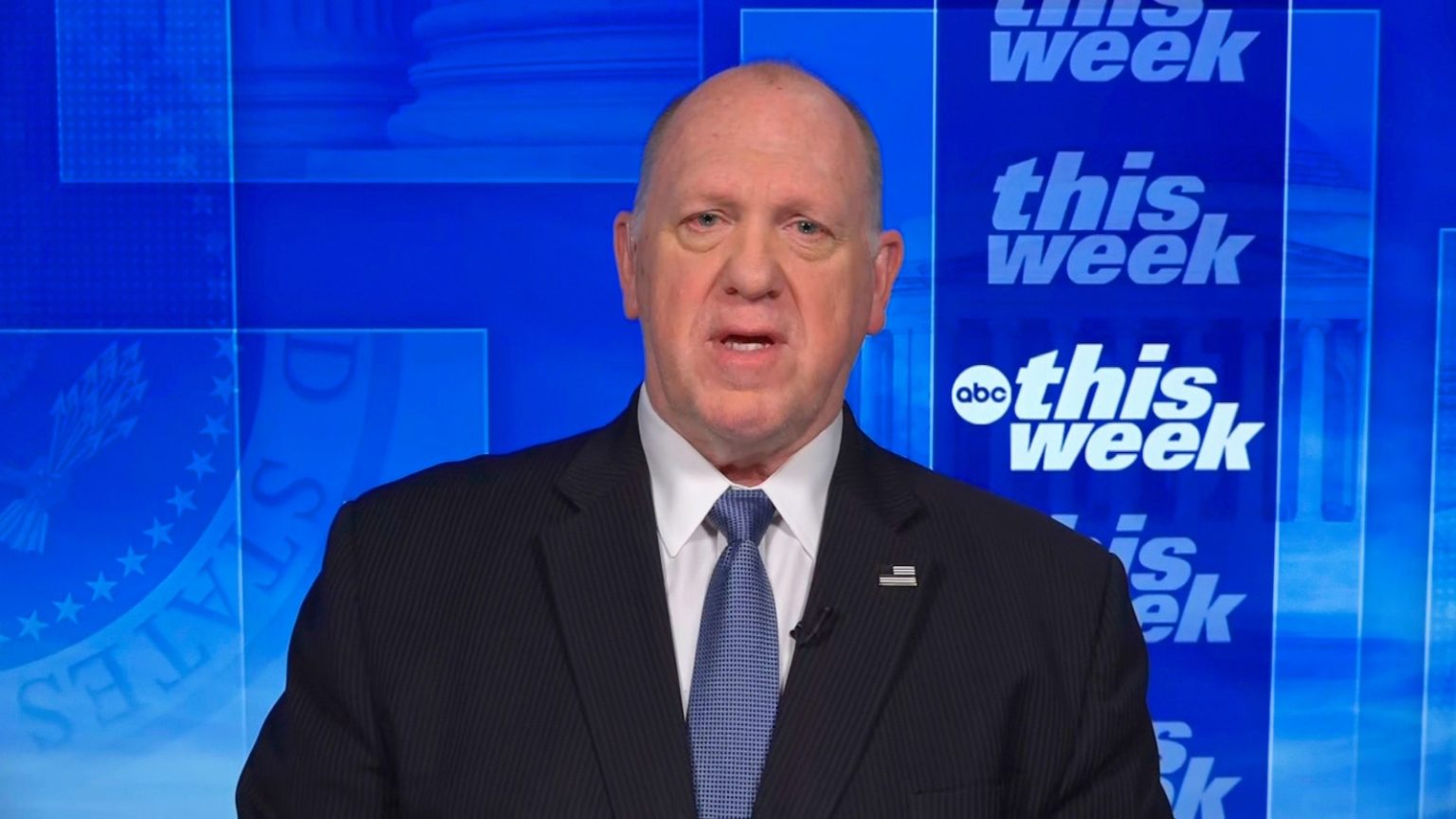Trump administration border czar Tom Homan criticized Sen. Chris Van Hollen’s trip to El Salvador to visit deported Kilmar Abrego Garcia, accusing the Democrat of traveling “on the taxpayer dime to meet with an MS-13 gang member, public safety threat, [and] terrorist.”
“What concerns me is Van Hollen never went to the border the last four years under Joe Biden,” Homan said in a Friday interview with “This Week” co-anchor Jonathan Karl that aired Sunday. “What shocks me is he’s remained silent on the travesty that happened on the southern border. Many people died, thousands of people died.”
In a separate interview on “This Week,” Van Hollen, D-Md., responded to Homan’s criticism, saying that he has long supported fighting gang violence.
“[Homan] is lying through his teeth on many places in that — in that record. And I have been actually fighting MS-13, probably longer than Donald Trump ever uttered the name MS-13. For 20 years in this region, I helped stand up the anti — you know, gang — anti-gang task force. But the idea that you can’t defend people’s rights under the Constitution and fight MS-13 and gang violence is a very dangerous idea. That’s the idea the president wants to put out. That’s why they’re spreading all these lies.”
White House “Border Czar” Tom Homan speaks with ABC News while appearing on ‘This Week.’
ABC News
Abrego Garcia, a Salvadoran native who was residing in Maryland, was deported to El Salvador’s notorious mega-prison in March. The White House alleges he is member of the MS-13 gang, which was designated as a “foreign terrorist organization” by the administration; his attorneys and family deny he’s affiliated with the gang.
Abrego Garcia received a protective court order in 2019 barring him from being deported to El Salvador due to fear for his safety. In a court filing, Immigration and Customs Enforcement has acknowledged he should not have been sent to El Salvador, calling it an “administrative error.” The Supreme Court has upheld an order saying the administration must “facilitate” his return to the U.S.
Van Hollen traveled to El Salvador last week and met with Abrego Garcia, whose wife is a U.S. citizen and constituent of Van Hollen’s, on Thursday after initially being denied access to him.
Van Hollen stressed that for him, this case is about protecting constitutional rights, telling Karl, “I am not defending the man. I’m defending the rights of this man to due process.”
But Homan defended the administration’s actions so far, arguing that under the 1798 Alien Enemies Act, which the administration invoked to deport hundreds of Venezuelan migrants including Abrego Garcia, due process rights are more limited.
“I stand by the fact I think we did the right thing here. We removed a public safety threat, a national security threat, a violent gang member from the United States,” Homan said. “We have followed the Constitution. We have followed the law. I am confident that everything we’ve done is follow laws within the constitutional constructs, absolutely.”
He continued, “The length of due process is not the same under the Alien Enemies Act. That’s why the Alien Enemies Act was created. President Trump invoked the authorities he had under the Alien Enemies Act, an act written and passed by Congress and signed by a President. We’re using the laws on the books.”
Homan’s defense of the centuries-old law in his Friday interview came just hours before the Supreme Court temporarily halted its use to deport any Venezuelans being held at a facility in northern Texas.
Karl pressed Homan on the due process rights of the deported undocumented immigrants, citing the 1993 Flores v. Reno Supreme Court opinion authored by conservative Justice Antonin Scalia that noted, “It is well established that the Fifth Amendment entitles aliens to due process of law in deportation proceedings.”
“Are you saying that by invoking the Alien Enemies Act that undocumented immigrants are not entitled to those due process rights under the Fifth Amendment?” Karl asked.
“We’re following the rules of the Alien Enemies Act. Again, I think this administration has followed the law. They’re using statutes enacted by Congress, signed by a president, to remove terrorists from this country. I’m not saying, you know — I’m not saying, I’m not arguing right here that nobody should get due process. I’m just saying there’s a different process under the Alien Enemies Act, and less of a process than you see through Title 8,” Homan said, referring to the immigration statute typically used to deport undocumented immigrants.
Homan also denied that any migrant is being labeled a gang member solely because of tattoos. On Friday, Trump posted a photo on social media of what he says is Abrego Gracia’s hand. The MS-13 symbols appear to be superimposed and it’s not clear if the other tattoos have any link to the gang.
“Tattoos are one of many factors that’s going to determine someone’s in a gang. That’s not the only one,” Homan said. “What I’m saying is you can’t ignore a tattoo. That’s, that’s one more factor that leads you to believe maybe it’s a gang member. It’s just not based on tattoos. It’s based on a lot of other things, but tattoos, one of many. But no one’s removed just because of a tattoo.”
